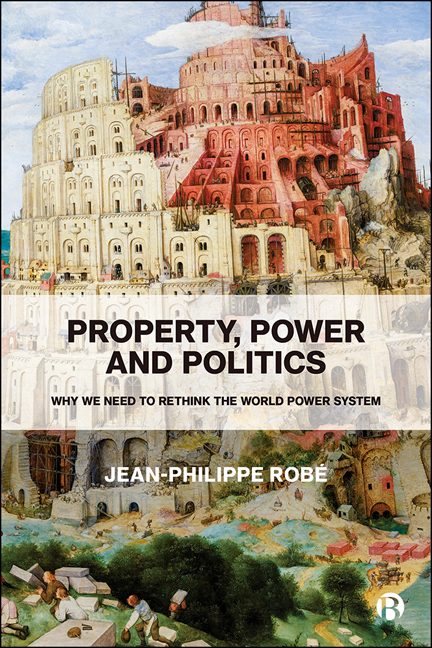Introduction to Part I
Published online by Cambridge University Press: 12 March 2021
Summary
The first part of this book is divided into five chapters. They address in turn the meaning of property today (1), the role of property in a modern constitutional mode of government (2), the relationship between sovereignty and property (3), the historical movement of the State from political enterprise to the modern State (4) and, finally, how modern constitutional systems mix political democracy and what can be economic despotisms (5).
To start with, it is important to realize that contrary to the commonsense understanding of property, property is not a right over things. It is a right of property owners against the world at large in connection with the objects of property. It is first of all a right of decision-and rule-making as a matter of principle in connection with objects of property. This makes of property part of the foundations of our Power System. Property is part of the constitutional rules required for the operation of a ‘State of law’.
Contrary to ‘common-sense’ perceptions of what property is, and to most of the explicit or implicit assumptions in the mainstream economic literature on property rights, property is not a right over things. Property is a right of legal persons (of ‘owners’) against all other persons in connection with the object of property.
In day-to-day life, one can avoid the pedantry of correcting this widespread misconception and treat property as a right over things. Making the mistake of thinking that rights exist over things and not against legal persons in connection with things, however, prevents the development of a proper understanding of property rights and of their role in today's society.
Most economists treat property as a spontaneous institution. They start their analyses with some notion of hunters and gatherers acquiring property by hunting rabbits or gathering berries. Then the hunters and gatherers meet and barter. They agree that on this particular day, so many berries are worth one rabbit. Then money is introduced in the system to facilitate exchange. The market economy is born. With this starting point, what property means is never really addressed. It appears as being mere possession over things: rabbits or berries, obtained via labour.
- Type
- Chapter
- Information
- Property, Power and PoliticsWhy We Need to Rethink the World Power System, pp. 39 - 52Publisher: Bristol University PressPrint publication year: 2020



